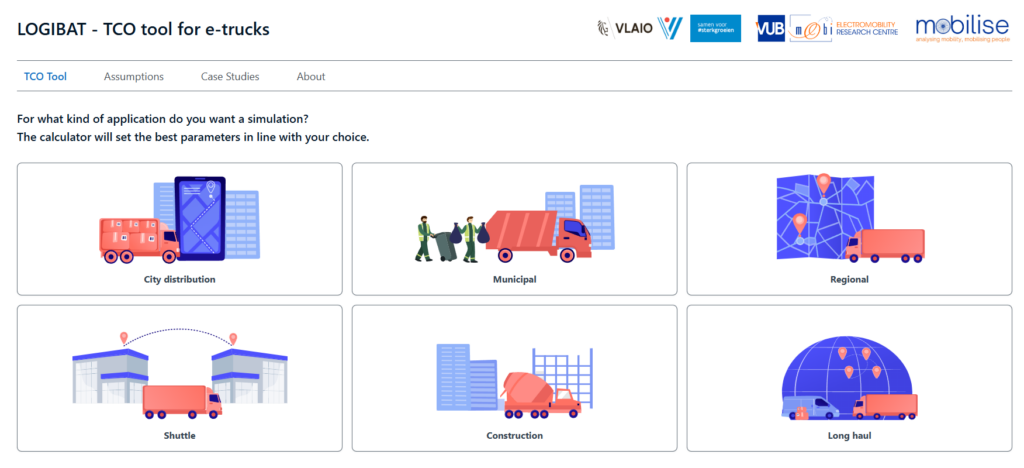Monday, November 18th, 2024
The LOGIBAT project led by ALICE’s member VIL, Flanders Spearhead Cluster for Logistics, in collaboration with UAntwerpen and several industry leaders, explored the potential of battery electric vehicles (BEVs) and the necessary infrastructure as a viable solution for zero-emission goods transport by road. The main objective of LOGIBAT was to prepare the Flemish transport sector to adopt battery technology to achieve zero-emission road freight transport. Here are some of the critical findings of the LOGIBAT project.
Battery electric trucks: from concept to reality
Battery electric trucks are no longer a distant possibility but are becoming a tangible reality in the logistics sector. The progress in battery technology has enabled these trucks to cover several hundred kilometres on a single charge, making them viable for all segments of heavy freight transport. This shift promises to transform the transport sector but requires immediate collaboration between the transport, energy, and government sectors to ensure a smooth transition.
Operational changes: integrating charging into daily activities
Electric driving requires a fundamental shift in logistics operations. Unlike conventional diesel vehicles, battery electric trucks must integrate charging into daily routines. Charging can often occur when trucks would otherwise be idle, such as overnight in depots, at loading docks, or during rest periods.
Strengthening cooperation: transport and energy sectors
A vital outcome of the LOGIBAT project is the need for closer cooperation between the transport and energy sectors. Transport companies need to rethink their approach to energy procurement while ensuring the timely availability of the necessary infrastructure in critical locations. Energy utilities can be crucial in providing cost-effective electricity to support the logistics sector’s shift to electric power.
Government role: providing a supportive framework
The government has a key role in facilitating this transition. Adjustments to driving and rest period regulations could support the specific needs of electric freight transport.
Total Cost of Ownership (TCO) Tool
A Total Cost of Ownership (TCO) tool was developed as part of the LOGIBAT project in collaboration with the Vrije Universiteit Brussel (VUB). This tool provides valuable insights into the cost comparison between battery electric trucks and traditional diesel vehicles, helping logistics companies make informed decisions about the transition to electric fleets.
Catenary Electric Road Systems: A Profitable Solution for Flanders
One of the innovative solutions explored in the LOGIBAT project is the use of Catenary Electric Road Systems (ERS), where trucks draw power from overhead lines while driving on highways. This technology, which combines electric driving with in-transit charging, offers a promising complement to fixed charging stations. Research by the University of Antwerp (UA) suggests that every euro invested in this climate solution could yield up to €8.3 over 20 years, making it a highly profitable option for decarbonising road freight.

The UA’s calculation model estimates that establishing a comprehensive ERS network in Flanders would require an investment of less than €2 billion—equivalent to just 0.8% of Flanders’ GDP. This relatively modest investment could significantly benefit international freight transport and help Flanders become a leader in sustainable logistics.
The LOGIBAT project has made significant progress in moving the Flemish transport sector towards a zero-emission future. The project has laid the groundwork for a sustainable transformation of road freight transport by investigating the feasibility of BEVs and the infrastructure required to support them. As the logistics sector continues to evolve, the lessons learned from LOGIBAT will be invaluable in guiding the transition to a cleaner, more sustainable future.
